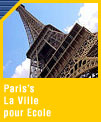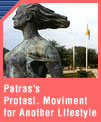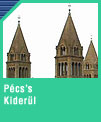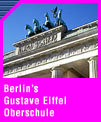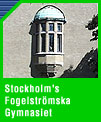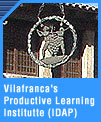
|
 Fogelströmska gymnasiet is a municipal school in the middle of Stockholm. Today, it holds 650 students between 16 – 20 years of age. They all belong to the seventeenth programme in the upper secondary school – the so called Individual programme. The mission of this programme is to reach the necessary level in the core subjects Swedish, English and Maths to go on to further education. Productive Learning is an instrument to find the potential of development in every single individual. Fogelströmska gymnasiet is a municipal school in the middle of Stockholm. Today, it holds 650 students between 16 – 20 years of age. They all belong to the seventeenth programme in the upper secondary school – the so called Individual programme. The mission of this programme is to reach the necessary level in the core subjects Swedish, English and Maths to go on to further education. Productive Learning is an instrument to find the potential of development in every single individual.
Short introduction to the Swedish education system.
The state governs the school system via aims and guidelines. But it is the duty of every municipality to draw up an education plan and organise schools in the area.
Compulsory schooling:
Preparatory year from the age of 6.
Compulsory nine-year school for all young people 7 – 16.
A majority of all students in the ninth and final grade of compulsory school apply for upper secondary school, and nine out of ten applicants are successful.
Optional schooling:
Upper secondary school is a three-year school. 16 - 19
Students can choose between 16 different national programs vocational as well as theoretical. There is also a seventeenth programme, called the Individual programme.
The individual programme
The Individual programme is a quite new phenomenon. It does not have a very long history in the Swedish schools. A reform some years ago stated that students leaving compulsory school who failed in the three core subjects Swedish, English and/or Mathematics were not allowed to apply for a national programme in the upper secondary school. That’s why the Individual programme was born.
Individual programmes should be based on the needs of the individuals. The aim was to enable the students to reach the acceptable level in the core subjects (Swedish, English and Maths) and to start a national programme later on.
The Individual programme is under constant discussion – it is a new programme which indicates that something has to be changed in schools. The growing Individual programme is a big failure for each individual as well as for society. According to current debates the Individual programme will disappear.
In Stockholm the Individual programme is offered at all the existing 25 upper secondary schools. It is organized as a preparatory year adapted to the specific national programme offered at the school.
Fogelströmska is the only school in Stockholm offering exclusively the Individual programme. The students are very often recommended to apply for Fogelströmska – knowledge and individual assessment are our characteristics. This cannot always be found in the national programme schools.
Fogelströmska gymnasiet
Students: 650 students this year.
200 of them are new-comers to Stockholm - refugees, asylum seekers or family immigrants. They study the Swedish language as an annexe.
100 of the 650 fulfil their individual plan outside Fogelströmska, for example for adult education, for high school or other individual choices.
350 students attend different classes at Fogelströmska with Swedish, English and Maths on the timetable.
Our students have one thing in common, only – they were not successful in the compulsory school. This is however the only similarity. They represent a wide spectra of personalities and backgrounds.
All students who apply for Fogelströmska are accepted. There is no possibility to refuse any application.
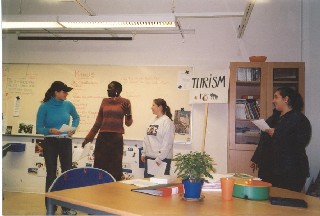
Staff: 80. Teachers, special designed teachers, career guides, social welfare officers, 1 psychologist, 2 nurses, 4 leisure time pedagogues and administration – 80 people in total.
Organisation: Four teams.
Each team consists of teachers, career guide and social welfare officer. The teams are designed differently according to the needs of the students. Each team is in charge of around one hundred students.
Why Productive Lerning – or - How to turn failure into success
Fogelströmska has existed since 1981, most of the years as a place for motivation, a place where young people could find their interests. When the reform with the Individual programme started some years ago our organisation became a school. We saw the opportunity to make a restart and bring the best from the old organisation into the new school.
Looking at the students; in what position were they, what were the needs? Shortly: How could we turn failure into success in one single school year?
These were the decisions we made for Fogelströmska as a school:
- Restart as a learning organisation
- See the whole individual
- Upgrade the importance of learning at internships.
Why a learning organisation?
What could we offer to our students that was new? They had already been in school for nine years without passing the final exam. We decided to focus on learning, not on education as most schools do. In a learning organisation, focus is on both students and staff’s learning, a guarantee for ongoing development of our school.
In a learning organisation the students take personal responsibility in the learning process, they judge and evaluate their own learning – a process from outer control to inner discipline.
Why taking notice of the whole individual?
In a learning organisation self-knowledge is vital since the beginning. By encouraging someone’s self-esteem, together with self-knowledge, a better predisposition will be achieved . With this new feeling that "I am able, I am not illiterate" self-knowledge will help the students increasing motivation, wellness and quality in the results.
Why upgrading the importance of internships?
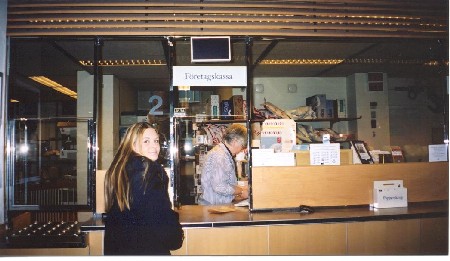 What is work and what is learning. Are they identical concepts? What is work and what is learning. Are they identical concepts?
How could learning outside school be evaluated? We made the following distinction: Work essentially aims to provide society and people with goods and services.
Learning essentially aims to increase the ability to understand and handle reality, the inner as well as the outer reality.
A certain amount of distance is required for learning to take place. Through distance there is a possibility of reflection. And reflection makes learning possible.
Thus learning takes place at the internship under the condition that students are offered a possibility of reflection. This reflection is offered in the class room under the name of Communication.
Well, what is now described is a true Productive Learning concept. Or as Fogelströmska prefers to call it; a City-as-school concept.
City-as-school in Fogelströmska
The way into a new system is long, curved and full of holes.
Fogelströmska started with small projects with just a handful of students involved. All the staff were invited to monthly Wednesday meetings, where the results from the projects were presented and the mental attitudes to learning were in the centre of discussions.
Very often our small projects were founded by EU, which meant that we could mirror our experiences in other INEPS-organisations.
The small project became bigger and bigger, more and more students and staff were involved in our City-as-School projects. Today about one hundred students are involved in the City-as-School model.
Several times, our staff, has made trips in order to visit other organisations within the network. Perhaps you all remember when 50 Fogelström people invading your organisation in Berlin, in Paris, in Denmark, in Finland?
Throughout the years Fogelströmska has taken part in seminars and congresses organised by IPLE.
Slowly the implementation of the City-as-School model has obtained a fairly firm foothold.
The initiation and the progresses have been lead and supervised by two half time project leaders – a real need that is recommended to all organisation interested in starting a PL project.
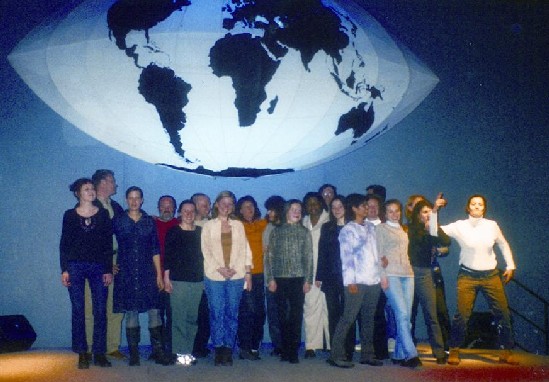
Changes and difficulties are linked together. The difficulties we encountered during the implementation are all due to our deep, personal attitudes and values, our own mental models. To change mental models deeply requires that we observe ourselves narrowly, expose ourselves and even dare to question the system we are defending. To have time to reflect over learning is a vital part of this mental process.
Other difficulties in the implementation are there just to make the model interesting, make us be more familiar with the model, make us deeper engaged in the new way of working. To mention some: students’ attendance to the internship places, integration of the subjects, etc. For pedagogues who have started this mental process there is no way back to an educational situation within four walls.
New challenges
The current school year is a new starting point to broadening the City-as-School profile at Fogelströmska. The school year is divided into four different periods. Each period will consist of seven weeks. The students are invited to choose contents for the different periods, depending on needs and interests. Two of the periods will be learning periods at internship places for most of our students. A new, big challenge to open up school to society outside school. With the EU-project’s help, the Mirror web site has good chances to find new modern ways of working in co-operation with the surroundings.
Tasks for the Communication teacher in City-as-School at Fogelströmska
1. Listen to the students reports and comments on their internship
2. Encourage the students to carry out investigation projects at and about their internship.
3. Maintain contact with the internship through visits, phone calls and by following up reports.
4. Listen to the employer suggestions that can be useful during the communication lessons, i.e. suggestions that are discussed and valued together with the student.
5.Try to establish– together with the students – connections with the school subjects.
6. Act as a guide through the world of studies and "research" on certain occasions. Also participate as an equal co-worker.
7. Introduce herself/himself as an expert in educational matters and a resources if things are getting difficult during the process of studying and learning.
8.Act as a co-ordinator during group discussions and help the students to develop their ability to listen and communicate in a group and to act as co-ordinators.
9. Act as an intermediary between the student and the special teachers, the career guides, the social welfare officer and others, when needed.
10. Keep herself/himself updated with the courses performed in the upper secondary national programme that the student intends to attend.
11. Collaborate continuously with the career guide. Several topics can be dealt with by both or one of the two professionals – i.e. at presentations and reports and when guidance is needed. It is important that students look upon both professionals as partners. Sometimes also as mentors and even experts – but preferably as co-workers. To them we are adults serving and backing them up, showing the greatest interest during those few hours we spent together every week .
12. Enjoy the productive situations that occasionally occur. These situations where there is joy, neatness and concentration in the air. When the group is gathered in a joined sense of understanding. What was it that happened? Why did it turn out so well? Communicating improves one’s mind when everything works out all right together with your mates, both youngsters and adults.
13. Await
|
|
|
